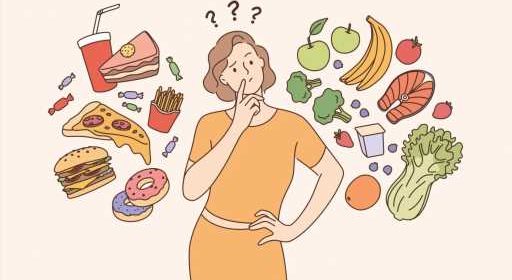6 healthy strategies to help with emotional eating – The Denver Post

Emotional eating is the act of eating as a way to cope with feelings, provide emotional comfort or stress relief, not just to satisfy physical hunger. Emotional eating and other unhealthy eating behaviors resulting from stress are relatively common, but also quite complex. Unfortunately, emotional eating can lead to undesirable consequences including poor diet quality, negative feelings and unintentional weight gain. Breaking emotional eating patterns involves learning healthy coping skills to deal with unpleasant feelings and stress. Extreme and restrictive diets are not the answer to emotional eating.
According to the American Psychological Association, 27 percent of adults report eating to manage stress and about one-third of those who report overeating or eating unhealthy foods due to stress describe this behavior as a habit. Food can serve as a distraction or reward for dealing with stress. Emotional eating can result from boredom, sadness and other feelings.
Emotional eating is often associated with consumption of hyper-palatable energy-dense foods. Hyper-palatable foods have a specific combination of fat, sugar, sodium and carbohydrates that make them both enjoyable to eat as well as calorically dense. The typical American diet is full of examples of hyper-palatable foods such as potato chips, hot dogs, pizza, ice cream and brownies.
Unfortunately, emotional eating can be a vicious cycle. Overeating hyper-palatable and calorie-dense foods and excess eating when not physically hungry can result in unintended weight gain. Weight gain can lead to food restriction and dieting, which results in additional emotional burden and negative feelings. Half of adults report that emotional eating leads to disappointment and feeling bad about their bodies.
While some folks believe that a diet is the first step to tackling emotional eating, the best success will likely come from a multi-pronged approach. Here are some strategies to help with emotional eating:
Seek the support you need. Whether it’s a therapist, friend, family member or a support group, lean on others who can listen openly and offer the support you need.
Practice healthy stress management techniques. Stress can be a significant contributor to emotional eating. Activities such as meditation, deep breathing, yoga, journaling or taking a walk can help tame stress.
Create a balanced meal plan. Plan meals using nutrient-rich ingredients like fish and lean poultry, whole grains, beans, fruit and vegetables. Avoid skipping meals or waiting too long in between meals.
Use mindful eating strategies. Avoid eating while watching screens. Serve meals and snacks on plates, eat slowly and engage your senses to enhance mindfulness of eating habits.
Related Articles
-
Health |
FDA warns of Guillain-Barre syndrome as possible risk of Pfizer’s RSV vaccine -
Health |
FDA expands contaminated eye product warning due to potential bacterial contamination, risk of blindness -
Health |
Lab leak most likely caused pandemic, Energy Department says, as spy agencies remain split -
Health |
Male fertility study: Men who regularly lift heavy objects at work have higher sperm counts -
Health |
Colorado bill would ban “facility fees” from certain medical bills. Hospitals say it could end their outpatient care.
Swap out hyper-palatable foods for more whole foods. Hyper-palatable foods are highly associated with excess calorie consumption. Instead, opt for lower-calorie foods that are surprisingly satisfying such as leafy greens and other vegetables, berries, low-fat dairy products, egg whites, fish, high-fiber whole grains and broth-based soups.
Be patient and remember that changing habits takes time. Emotional eating habits often develop over long periods of time, possibly stemming from adolescence or even earlier. Stopping the cycle of emotional eating will require forming new, healthy strategies for dealing with stress and emotions.
LeeAnn Weintraub, MPH, RD is a registered dietitian, providing nutrition counseling and consulting to individuals, families and organizations. She can be reached by email at [email protected].
Source: Read Full Article